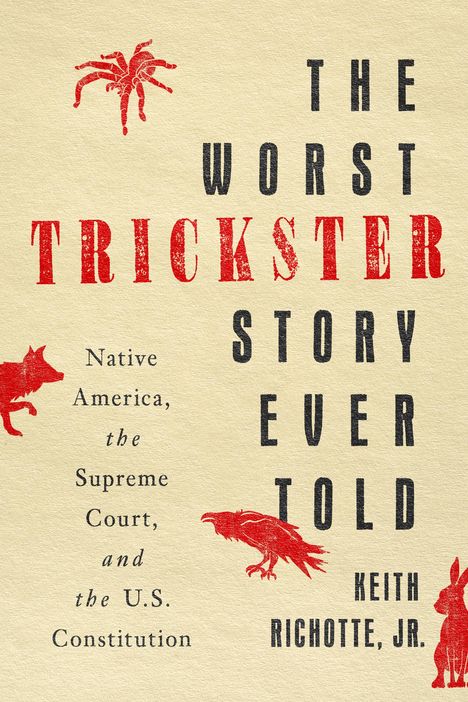Keith Richotte: The Worst Trickster Story Ever Told, Gebunden
The Worst Trickster Story Ever Told
- Native America, the Supreme Court, and the U.S. Constitution
(soweit verfügbar beim Lieferanten)
- Verlag:
- Stanford University Press, 02/2025
- Einband:
- Gebunden
- Sprache:
- Englisch
- ISBN-13:
- 9781503641648
- Artikelnummer:
- 11770800
- Umfang:
- 296 Seiten
- Gewicht:
- 603 g
- Maße:
- 229 x 152 mm
- Stärke:
- 21 mm
- Erscheinungstermin:
- 11.2.2025
- Hinweis
-
Achtung: Artikel ist nicht in deutscher Sprache!
Klappentext
"Keith Richotte begins his playful, unconventional look at Native American and Supreme Court history with a question: When did plenary power--the federal government's self-appointed, essentially limitless authority over Native America--become constitutional? When the Supreme Court first embraced this massive federal authority in the 1880s it did not bother to find any justification for the decision, which was rooted in racist ideas about tribal nations. However, by the 21st century, the Supreme Court began telling a different story. It was claiming the U. S. Constitution as the source of federal plenary power over Native America. So, when did the Supreme Court change its story? Just as importantly, why did it change its story? And what does this change mean for Native America, the Supreme Court, and the rule of law? Richotte uses the genre of trickster stories to uncover the answers to these questions and offer an alternative understanding. More than corrective constitutional history, The Worst Trickster Story Ever Told provides an irreverent synthesis of Native American legal history across more than 100 years, reflecting on race, power, and sovereignty along the way. Engaging with the story of plenary power from an Indigenous perspective, Richotte shows, opens possibilities that are otherwise foreclosed. Through the genre of trickster stories we are able to imagine a future that is more just and equitable, and that better fulfills the text and the spirit of the Constitution"--


